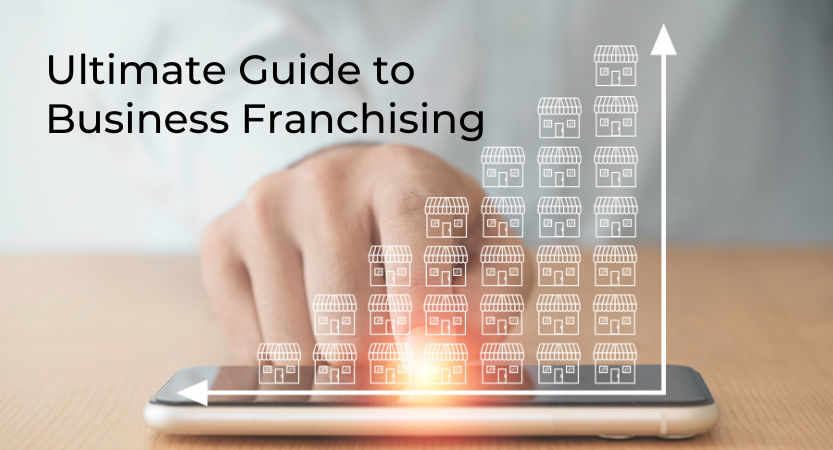Franchises give business owners the chance to launch a finished operation with an established branding and operational procedures.
- Franchises give business owners the chance to purchase an existing company with an established branding and operational procedures.
- It’s crucial to invest time in exploring all of your alternatives when purchasing a franchise in order to select the one that is the best fit for you.
- When purchasing a franchise, you should prepare to spend anywhere between $10,000 to $100,000 in upfront costs. Additionally, there will be monthly royalties and marketing charges.
- For those seeking a comprehensive guide on purchasing a franchise, this article is for you.
Franchising is a fantastic method to launch a business, but you must conduct your research before deciding to spend the thousands of dollars required to own one. Understanding a franchise’s definition and how it varies from a chain or independent firm is crucial. The operation of a franchise is different from a company founded on your own unique idea.
You may learn everything you need to know about what it takes to be a franchisee, also known as a franchise entrepreneur, from our guide. We go through topics including franchise examples, how to purchase a franchise, financing choices, the benefits of employing a franchise lawyer, and other important factors.
What is a franchise?
A franchise is a company with one or more owners that offers goods or services under the name and regulations established by a parent company. In exchange for fees from the franchisees, the corporation helps its franchisees with marketing and inventory as part of ownership.
Franchises are “a method of distributing products or services involving a franchisor, who establishes the brand’s trademark or trade name and a business system, and a franchisee, who pays a royalty and frequently an initial fee for the right to do business under the franchisor’s name and system,” according to the International Franchise Association.
What types of franchises are there?
There are five basic types of franchises you’re likely to run into, and each one offers different chances and factors to take into account.
- Franchises for jobs: These businesses frequently have little startup costs and overhead, and some may even be run from home. Usually, only a little amount of goods or equipment is needed. Examples of this type of service include child care, lawn care, and cleaning franchises.
- Franchises for selling products: In these types of franchises, the franchisee sells the franchisor’s goods. The trademark of the franchisor but not any of their infrastructure are typically given to product franchise owners. Common examples of product franchisors include auto, appliance, and soda firms.
- Business-format franchises: Franchises with a business model are the most prevalent since they greatly reduce the workload for the franchisee. All of the franchisor’s systems, including those for marketing, operations, and training, are accessible to the franchisee. Franchises in the business formats of fast food and business services are among the most prevalent.
- Investment franchises: Franchises that require franchisees to contribute their own money include investment franchises. This might be accomplished with money or by having the franchisee hire and manage their own management team. Examples include chain hotels and major restaurants.
- Conversion franchises: Franchises that specialize in conversion are essentially business-format franchises with an acquisition component. It entails the franchisor buying rival companies in their industry and turning them into franchise outlets. In this approach, the company can keep operating while using the franchisor’s technologies. As a result, the franchisee may expand quickly and the franchisor can make more money with less rivalry.
What is the difference between a franchise and a chain?
A chain is made up of two or more locations that share a brand, adhere to the same corporate store policies, and provide the same goods or services as their parent company. That might resemble a franchise, but there are several significant differences between chains and franchises. Some of the variations are as follows:
- Ownership: A franchisee is the owner of a franchise, as opposed to the parent company of a chain business. Both types of ownership adhere to the same rules and corporate directives.
- Financing: Franchises might ask their franchisees for financial support in order to raise money to pay for corporate and specific franchise site expenses. Franchises consequently grow more quickly than chain stores do.
- Cost of operation: Operating a franchise is typically less expensive than operating a chain store. Franchise-owned businesses have cheaper operating and overhead expenses since franchisees can handle tasks like serving and cleaning.
- Profitability: Franchise firm owners must split profits with their franchisees, which reduces their profitability. The ownership of chain stores is more tightly controlled. Therefore, over time, the parent firm can experience more earnings.
How to buy a franchise, step by step
If you’ve determined that starting a franchise is the appropriate move for you, start by taking the following actions:
1. Be sure about your reasoning.
Owning a franchise—or running any kind of business, for that matter—can be a demanding endeavor on a physical, emotional, and financial level. Be sure of why you want to own a franchise before you jump into purchasing one. If you believe having a franchise will be simpler than running any other kind of business, remember that operating a business, in general, has its difficulties.
2. Research which franchises you may want to own.
Not every franchise is the best fit for you, even the most well-known ones. When selecting a franchise, thoroughly examine both the local market in which your franchise will operate and the parent company’s relationship with franchisees. The process should take many weeks, and the following standards should be met:
- A proven track record of great sales: It’s best to select a franchise that has evidence of its profitability.
- Growing market: The franchise you select must be in a market that is expanding if you want to be successful.
- Social responsibility: People like to conduct business with organizations that are socially responsible. Discover the socially responsible practices employed by the franchises you are considering.
- Competition on a local level: A little competition is okay, but too much competition close by can ruin your firm. It’s not necessary for the competition to take the shape of a franchise; too many locally owned establishments in the same sector concentrated in one location might likewise hinder sales.
- Repeat business: How likely is it that the franchise will result in recurring business for you? For instance, a franchise owner of health supplements may at least count on the same clients returning each month to restock their vitamins.
- Opportunities for product and service upselling: McDonald’s is a great example of a business that succeeds at doing this. How about a burger? Fries to go with that burger, please. Would you like that to be larger? These are some instances of upselling clients to increase revenue.
- Franchise fees: How much do franchise fees cost, and what do you get in return? You should hope to hear that you will get top-notch support for hiring, marketing, and training.
- What it’s like to work in that franchise: Find out what it’s like to work for that franchise by requesting to shadow an existing franchise owner. You can better understand your enthusiasm for this business and whether it’s something you can and want to do by spending some time in the shoes of an existing franchise owner.
3. Begin the application process.
Choosing a franchise is the first step in the application process. In this situation, legal counsel might be beneficial. As part of the application process, you will be screened in the same way that you screened franchises. The following factors will be taken into account by franchisors:
- Make sure you have enough money in your finances to keep the doors open.
- Your history, which includes your training, employment history, and motivations for starting the business
- In which city do you wish to open the franchise?
- What you already know about it and why you are interested in their franchise
4. Set up your “discovery day” meeting.
The corporate office of a franchise would typically have a face-to-face meeting with the potential franchisee before the COVID-19 pandemic. You get to know each other better and can ask any questions you have at this meeting, also referred to as the “discovery day,” before deciding to commit to purchasing a franchise.
However, since the pandemic, virtual discovery days have become more common. You should anticipate taking a virtual tour of the franchise as part of the virtual meeting. It depends on the franchise when your discovery day is scheduled; some prefer to hold the meetings at the beginning of the recruitment process, while others prefer to hold them near the conclusion.
Requesting an in-person discovery day meeting will help you determine whether the collaboration is a good fit for you once pandemic limitations start to loosen.
5. Apply for financing.
The majority of franchisees will require funding to start their business. A bank loan will frequently be the solution for many people. Consider the top business loans we suggest if you need money for your franchise, including our reviews of Biz2Credit and Rapid Finance.
6. Review and return your franchise paperwork very carefully.
It may be helpful to seek the assistance of an attorney to guide you through this procedure as these contracts have a tendency to be lengthy and contain ambiguous language.
7. Purchase or rent a space.
You will have previously selected the town or city for your franchise at this stage of the procedure. It’s now time to actually leave the house and buy or rent a business place.
8. Get training and support.
You are joining a well-known company with a logo, messaging, set of rules, and merchandise. You’ll take this action to firmly establish your position in the industry. Get instruction on the following franchise aspects:
- Products and services branding, including where to get them and how to market them
- Displays at the point of sale and product placement
- Technology for payments, such as credit card processing
- strategies for this particular business model’s sales
What are the initial investment costs and franchise fees?
Owning a franchise typically requires investing money before you can generate money, as you might anticipate. Franchise costs, or what you spend to run a franchise location, are a part of owning a franchise. You must pay to receive a piece of the pie, so think of the franchise fee as your rite of passage.
Buying a franchise can be expensive. Some franchises demand an upfront payment from franchisees, which can be anywhere between $10,000 and more than $100,000. The continuous marketing and royalty fees are another expense that are frequently based on the monthly revenue generated by your franchise location.
If your typical monthly income is $25,000 and the franchisor charges a 2% marketing fee, you’ll have to pay your franchisor $500 each month, according to an example given by the U.S. Small Business Administration (SBA). The SBA also mentioned that franchise royalties vary depending on the type of franchise from 4% to more than 12% of your revenue.
How much money can I make by owning a franchise?
You can earn money based on the following variables:
- Paying back loans
- Reinvestment necessary for business (including franchise fees)
- Taxes
- Since the start of the franchise, how much money have you made per year?
- How much did you keep for yourself?
- What unforeseen costs did you incur?
- What do you think is a reasonable amount of money I can make by owning this franchise, based on what you’ve seen?
You should also think about the area. Your profits will be impacted if there is a similar franchise or a nearby competition within a few miles.
What are your financing options to pay for your franchise?
Despite the required upfront costs, there are a number of financing solutions to take into account, so you are not obliged to have all the money before beginning a franchise firm.
Four financing possibilities for franchisees were described by Blake Martin, owner and president of FranNet of The Heartland and a nearby franchisee with more than 20 years of expertise in the franchising sector:
Liquid capital
Any loan you ask for should be between 25% and 30% in liquid capital. Cash on hand, assets you leverage, such house equity, or cash injections from close relatives or anonymous investors are some examples.
Traditional and/or SBA-backed loans
According to Martin of Business News Daily, “hundreds of high-quality franchises are on the SBA’s registration, which normally helps to speed that loan process.”
Leveraging of assets to self-fund
To cover the money you’ll need for launch and operations capital, you may turn to lines of credit, the leveraging of real estate assets, and business beginning programmes that let you roll over a portion of qualifying retirement funds tax- and penalty-free.
Partnerships with other funders
As a last resort, you might try to form partnerships with additional financiers, but according to Martin, the majority of franchises would demand that any shareholders sign the franchise agreement as a binding contract.
Starting your franchise the right way
Franchise ownership can result in a rewarding career, but do your research beforehand before deciding to open one. Do extensive research, calculate your expected earnings, and weigh all of your funding choices. It’s frequently best to retain legal counsel as well. This will make the process of becoming a franchisee as easy as possible.




